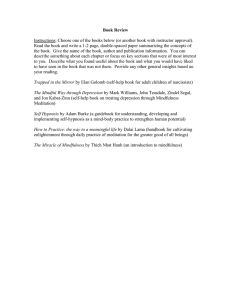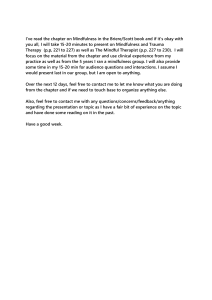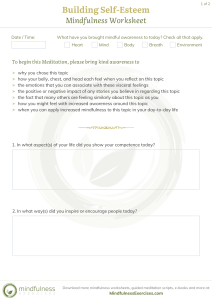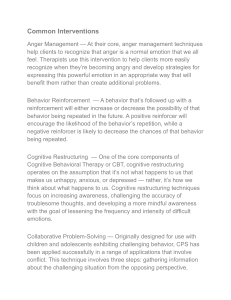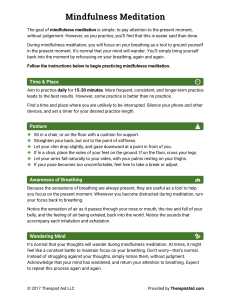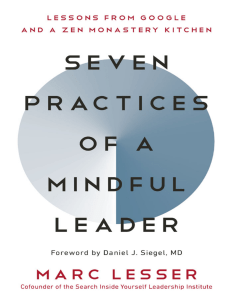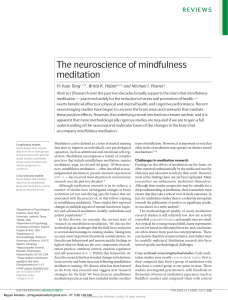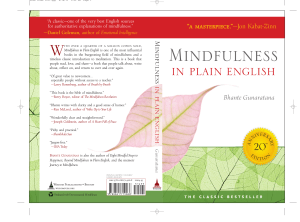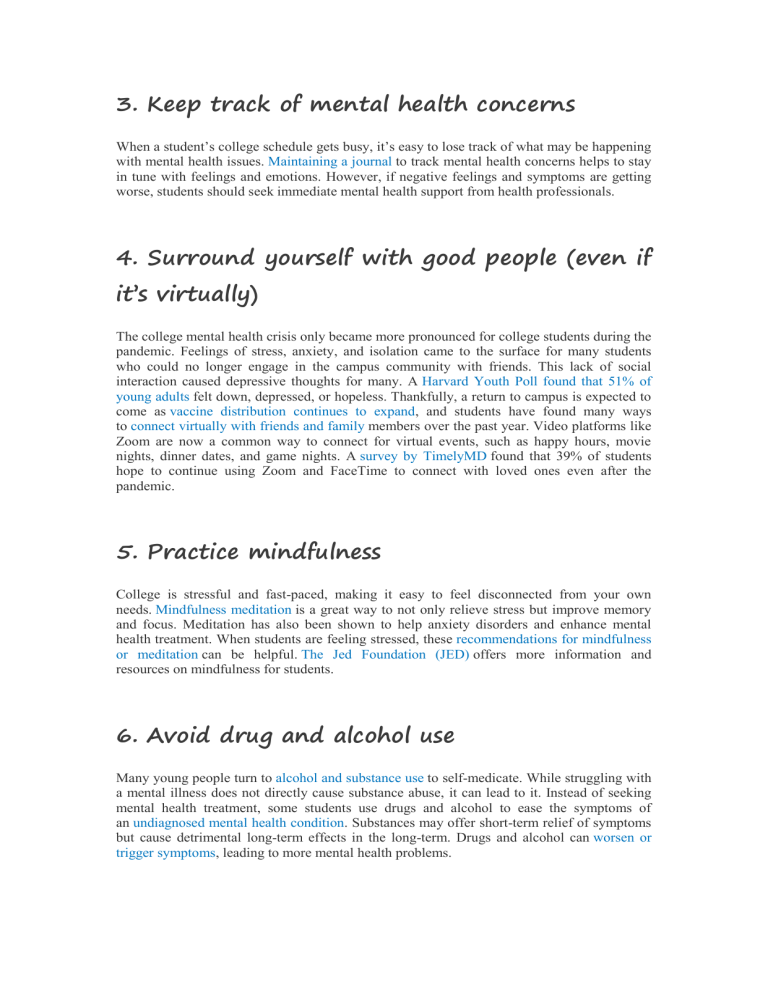
3. Keep track of mental health concerns When a student’s college schedule gets busy, it’s easy to lose track of what may be happening with mental health issues. Maintaining a journal to track mental health concerns helps to stay in tune with feelings and emotions. However, if negative feelings and symptoms are getting worse, students should seek immediate mental health support from health professionals. 4. Surround yourself with good people (even if it’s virtually) The college mental health crisis only became more pronounced for college students during the pandemic. Feelings of stress, anxiety, and isolation came to the surface for many students who could no longer engage in the campus community with friends. This lack of social interaction caused depressive thoughts for many. A Harvard Youth Poll found that 51% of young adults felt down, depressed, or hopeless. Thankfully, a return to campus is expected to come as vaccine distribution continues to expand, and students have found many ways to connect virtually with friends and family members over the past year. Video platforms like Zoom are now a common way to connect for virtual events, such as happy hours, movie nights, dinner dates, and game nights. A survey by TimelyMD found that 39% of students hope to continue using Zoom and FaceTime to connect with loved ones even after the pandemic. 5. Practice mindfulness College is stressful and fast-paced, making it easy to feel disconnected from your own needs. Mindfulness meditation is a great way to not only relieve stress but improve memory and focus. Meditation has also been shown to help anxiety disorders and enhance mental health treatment. When students are feeling stressed, these recommendations for mindfulness or meditation can be helpful. The Jed Foundation (JED) offers more information and resources on mindfulness for students. 6. Avoid drug and alcohol use Many young people turn to alcohol and substance use to self-medicate. While struggling with a mental illness does not directly cause substance abuse, it can lead to it. Instead of seeking mental health treatment, some students use drugs and alcohol to ease the symptoms of an undiagnosed mental health condition. Substances may offer short-term relief of symptoms but cause detrimental long-term effects in the long-term. Drugs and alcohol can worsen or trigger symptoms, leading to more mental health problems. 7. Find ways to get involved Nonprofits around the world are working to problem-solve and develop innovative solutions for the public health crisis. Harvard Medical School published an article stating that “volunteering helps people who donate their time feel more socially connected,” which can help decrease loneliness and depressive thoughts. And the pandemic even created new ways to volunteer and give time to worthy causes through virtual methods.
